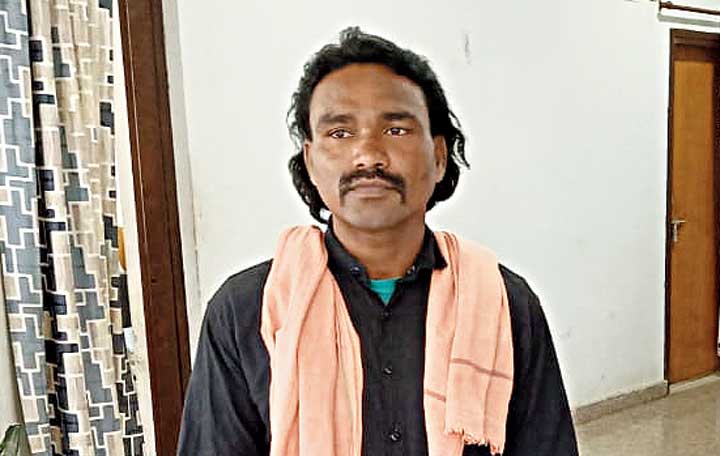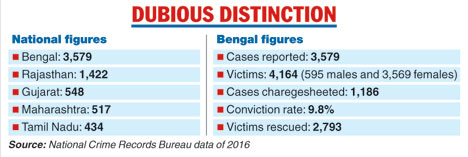Solving certain problems requires a multi-pronged approach; they will persist if they are viewed through a narrow lens. This was evident in the findings of a recent study on why human trafficking keeps growing in some Indian states. The revelations are appalling. For instance, less than one per cent of the accused in trafficking cases have been convicted in the past decade in West Bengal and Andhra Pradesh. But they also serve to expose the complex nature of the malaise itself. Human trafficking thrives on poverty, deceit and violence. The economic realities of impoverishment and lack of opportunity among underprivileged communities are often cited as the root cause for the persistence of trafficking. However, the inability to curb the problem ought to open up other lines of investigation, with a particular focus on the low conviction rate and the dismal pace at which the wheels of justice seem to turn. Bengal, for example, fared among the worst in terms of child trafficking according to data from the National Crime Records Bureau, in spite of the existence of several anti-trafficking initiatives by the police, non-governmental organizations and the state government.
From the findings of the present study, it becomes clear that shoddy investigations and lax prosecution are the primary causes of traffickers evading prison. This points to an overall absence of sensitization among the police and the critical need to bring about reforms on that front. More ominously, the figures indicate that the paltry conviction rate instils among traffickers a sense of immunity from not only the keepers of the law but also the legal process itself. This is made amply evident by the fact that 31 traffickers accused in 91 cases are believed to be repeat offenders. Trafficking also relies on shadowy networks. There is evidence to suggest that seasoned traffickers enjoy tacit support from sections of the political establishment as well as law enforcement agencies. As such, the mere existence of laws is not enough. The process of policing and investigation needs to be tightened, hearings of cases fast-tracked and the stakeholders of the crime made accountable. All of these measures would lead to the conviction rate in trafficking being brought up.












